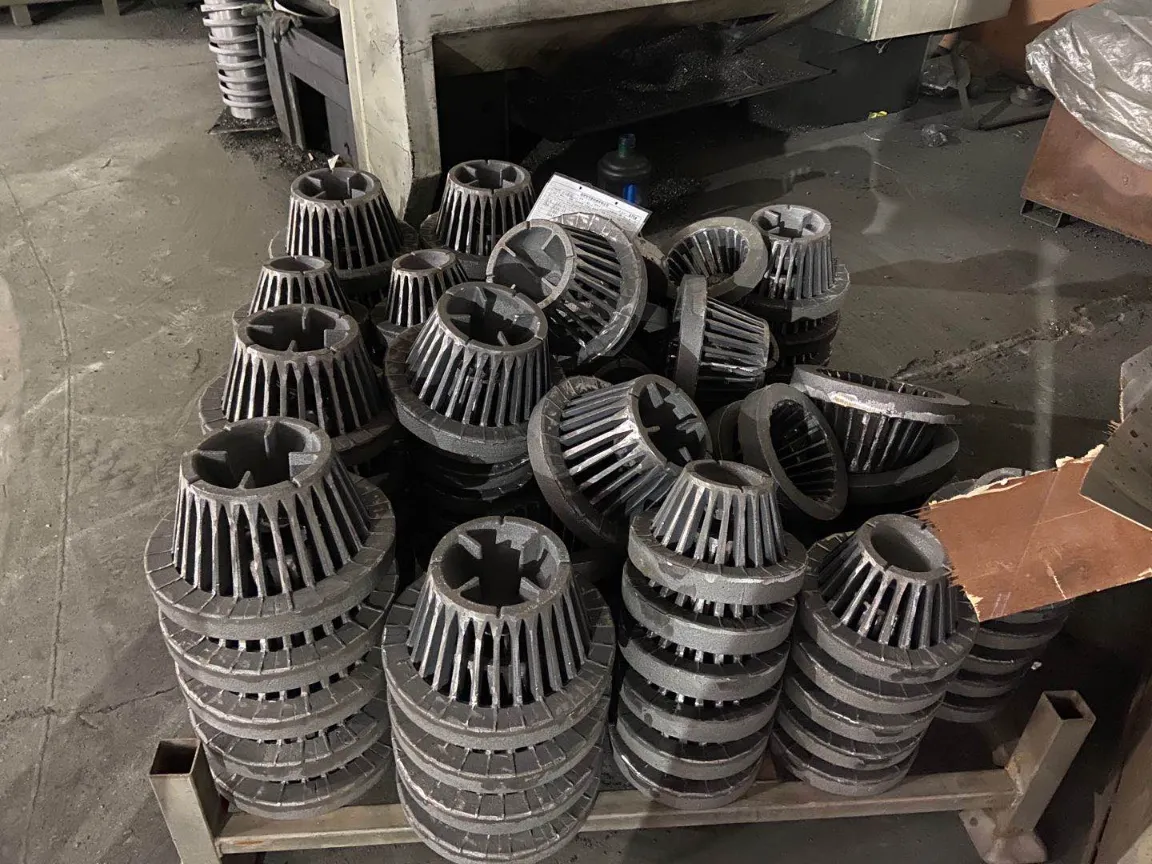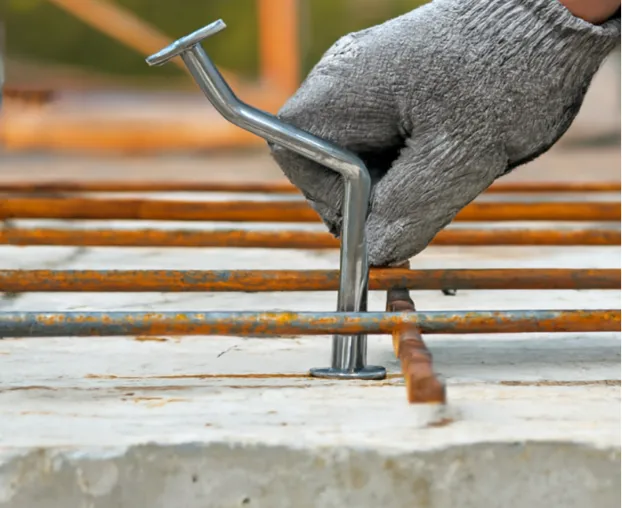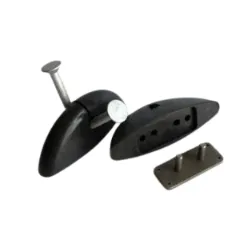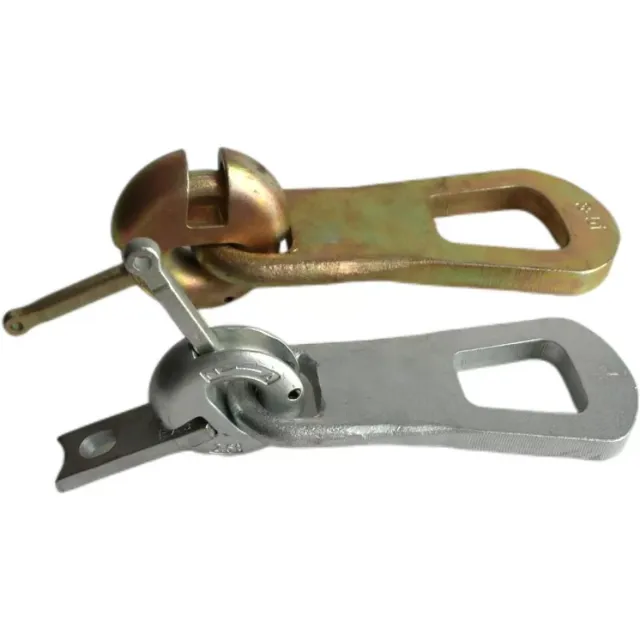Introduction
Road rollers pack down surfaces for smooth, durable roads. Cast iron plays a key role in keeping these machines stable. This article breaks it down from material traits, design tips, and manufacturing steps.
Why Road Roller Stability Matters
Impact on Road Quality
Stability in road rollers ensures even compaction. That leads to flat, strong pavements. Without it, bumps and weak spots crop up fast. Think about a highway with uneven lanes; drivers hate that. Poor stability causes skips in pressure, ruining the whole surface. Rollers need to press consistently to bind materials tight. If the machine wobbles, air pockets form, and water seeps in later. Cracks follow. Stable rollers deliver uniform density, cutting down on repairs. It’s all about getting the job right the first time.
Safety and Operational Efficiency
Unstable rollers tip over easily on slopes or rough ground. Operators face real dangers then. A steady machine cuts those risks. Plus, it runs smoother, saving fuel and time. Over years, solid stability means fewer breakdowns. Parts hold up better against constant pounding. Imagine a crew finishing early because the roller doesn’t shake apart. Efficiency climbs. Stable designs also boost comfort, letting operators focus without fighting vibrations. In the end, it protects lives and wallets.
Properties of Cast Iron That Improve Stability
High Density and Weight Distribution
Cast iron packs a lot of weight in a small space. That’s perfect for road rollers. High density lowers the center of gravity. The machine hugs the ground better. No tipping on turns or inclines. Designers use cast iron parts to spread load evenly. Drums and frames benefit most. Heavier bases prevent shifts during operation. It’s like anchoring a boat in choppy water. Without that weight, rollers skid or bounce. Cast iron fixes that by balancing forces naturally.
Excellent Damping and Vibration Resistance
Cast iron absorbs shocks like a sponge. Its structure damps vibrations from the engine and ground. Less shaking means steadier compaction. Operators feel less fatigue too. On the job, this translates to cleaner work. Vibrations can loosen bolts over time, but cast iron fights that. It quiets the whole setup. Ever notice how old iron bells ring true? Same idea here. The material handles repeated hits without losing form. That keeps the roller stable through long shifts.
Durability and Wear Resistance
Cast iron stands up to abuse. It resists scratches and dents from rocks or debris. In rollers, this means drums last longer under pressure. No quick wear-outs. The material’s toughness comes from its makeup. Graphite flakes inside add strength. Parts endure impacts that would crack lesser metals. Sure, it’s heavy, but that weight pays off in lifespan. Rollers with cast iron components often outlast competitors. Maintenance drops. It’s a win for heavy-duty use.

Design Considerations for Cast Iron Road Roller Components
Thickness and Geometry Optimization
Thicker walls in cast iron parts prevent bends. But don’t overdo it; that adds unnecessary cost. Geometry matters too. Rounded edges cut stress points. Cracks start less often. Designers aim for shapes that flow loads smoothly. Like building a bridge, balance is key. Too thin, and it fails. Too bulky, and efficiency suffers. Optimize for the roller’s size. Small tweaks make big differences in stability. It’s about smart choices, not just piling on material.
Integration with Other Materials
Cast iron pairs well with steel or aluminum. Steel adds flexibility where needed. Aluminum lightens non-critical spots. Together, they create a hybrid frame that’s tough yet agile. Bolts and welds tie them secure. This mix enhances overall balance. Cast iron handles the heavy lifting, while others fill gaps. Ever seen a roller with mixed metals? It performs better on varied terrains. The combo reduces vibrations across the board. Stability improves without extra weight.
Surface Treatment and Coating
Coatings shield cast iron from rust. Paint or epoxy layers work best. They also boost wear resistance. Treatments like shot peening harden surfaces. That fights corrosion in wet conditions. Rollers see all weather, so protection counts. A good coat extends life by years. Skip it, and pits form fast. Inspections catch issues early. In the field, treated parts hold stability longer. It’s simple upkeep that pays dividends.
Manufacturing Best Practices
High-Quality Casting Process
Choose the right method: sand casting for big pieces, gravity for precision. Pressure casting speeds things up. Control defects like shrinkage or pores. Clean molds help. Pour metal slow to avoid bubbles. Quality starts here. Bad casts lead to weak spots. Rollers can’t afford that. Techniques evolve, but basics stay the same. Test batches often. It’s trial and error sometimes, but pros nail it.
Heat Treatment and Stress Relief
Heating tempers the iron. It gains strength and flex. Annealing relieves internal stresses. No sudden breaks later. This step is crucial after casting. Uneven cooling causes warps. Proper treatment evens it out. Rollers benefit from tougher parts. Think of it as toughening leather. The process isn’t quick, but results show in performance. Skip it, and cracks appear under load.
Precision Machining and Quality Inspection
Machines trim casts to exact sizes. CNC tools ensure fits. Assembly goes smooth then. Inspections use NDT like ultrasound. 3D scans catch tiny flaws. No guesses. Quality checks at every stage. A missed defect could destabilize the whole roller. It’s detailed work, but necessary. Tech makes it faster now. Rollers roll out reliable.
Baoqi’s Expertise in Producing Road Roller Castings
Experience with Heavy Equipment Castings
Baoqi has years in making heavy-duty casts. They’ve handled large roller parts for various projects. Cases include big drums for highway jobs. Their track record shows reliability in tough demands.
Customization and Material Selection
Baoqi picks the right iron grade per client needs. Options like gray or ductile suit different rollers. Custom designs fit specific machines. This service stands out for tailored stability solutions.
Quality Assurance and On-Time Delivery
Baoqi manages production flows tight. High standards in checks ensure top casts. Delivery hits deadlines, keeping projects on track.
Conclusion
Cast iron boosts road roller stability through weight, damping, and toughness. It ensures safe, efficient work. Baoqi excels in high-quality casts for these needs. Reach out for custom options.
FAQ
Q1: What makes cast iron ideal for road rollers?
Its density and vibration resistance provide better stability and longevity.
Q2: How does stability affect road construction?
Stable rollers compact evenly, leading to smoother roads with fewer defects.
Q3: Can cast iron be combined with other materials?
Yes, it integrates with steel or aluminum for balanced designs.
Q4: What defects to watch in casting?
Shrinkage, pores, and cracks; proper processes minimize them.
Q5: Why treat cast iron surfaces?
To prevent rust and wear, extending the equipment’s life.









